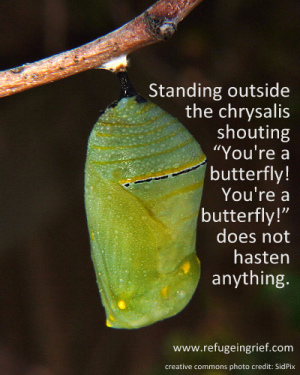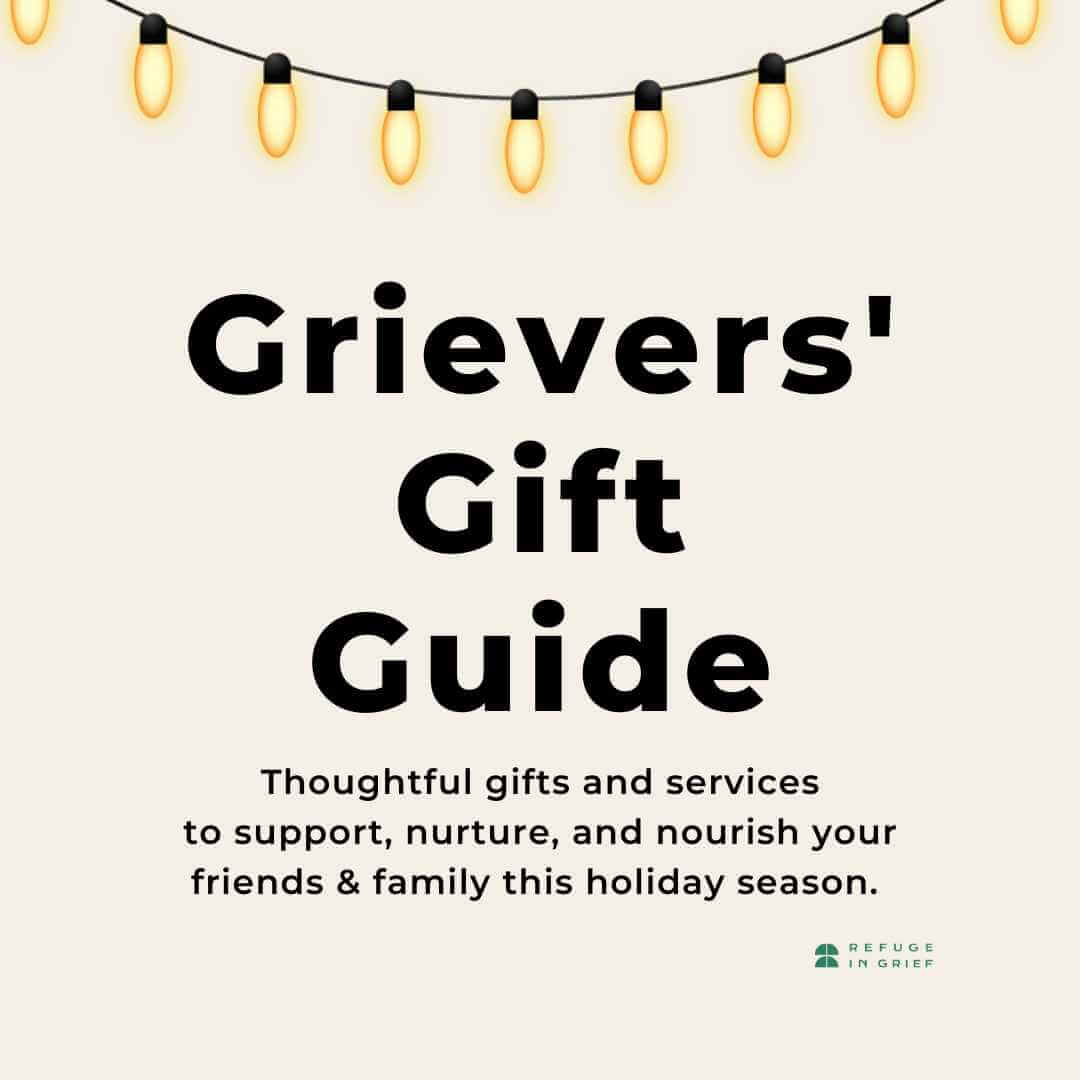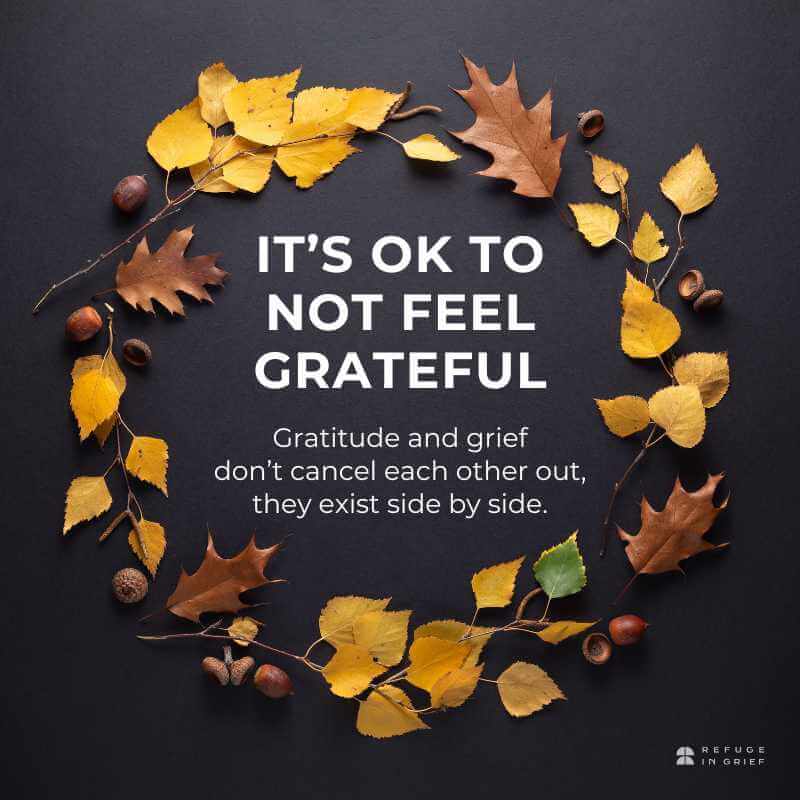Grief Does Not Get "Transformed."
Continuing my slightly cranky rant against the typical response to grief, a repost, friends:
The butterfly: such a common symbol of transformation. All wiggly dark parts, all mysterious and hidden, erupting from its safe cocoon into the bright, winged world. Its wings like stained-glass windows. Its antennae cued in to the higher worlds. Transcending the limitations of its earlier form. The triumph of flight. The transformation inherent in every pore.
Phht. Hogwash.
It’s an insect. A gorgeous one, yes. A useful one, yes. But a guiding metaphor for grief? No.
No.
Now. I say this as someone who does, in fact, speak symbol. If you’ve ever talked to me for any amount of time, you know how I love metaphor. I can’t not speak in metaphor or story, when one presents itself. In fact, I learned some things about the evolution of the insect within the cocoon this week that have my mind and heart doing back-flips with metaphorical implications, not even to mention just the simple scientific coolness.
But it’s that common, expected, metaphor of the butterfly emerging from its cocoon that falls supremely flat when it’s shoved at you inside your grief.
Here’s why it doesn’t work:
- There’s that subtle implication that who you were Before grief happened in your life was somehow “less than” who you are now, or who you might become. Think caterpillar vs. butterfly: who gets all the press? Everyone wants the winged transformation, but no one wants the bug.
- Even well-meaning encouragement to become the butterfly! has its subtext: please become the butterfly already, because this whole cocoon thing has gone on too long. There is an impatience in those words, a desire to rush someone along and get back to the pretty parts of life. (there’s also the fact that not everyone needs cheerleading in their grief. They lost someone they love – that doesn’t mean they’ve lost their self-esteem, or their belief in themselves.)
- You can’t rush the cocoon. Have you ever opened up a chrysalis, wondering what’s inside? When exactly does the caterpillar become the butterfly? If you open up that chrysalis, you do not hasten the process of the becoming butterfly. What you do is destroy the darkness. You take away the environment within which deep, deep, change is happening. That cocoon is necessary. It is there for a reason. The changing heart, the changing life – they not only deserve a protected space, that protected space is required for whatever is to come.
- The butterfly is not all that. Transformation is not the goal of grief. It may seem like the goal if you’re on the outside looking in, thinking the person you love really just needs to embrace their inner beauty and transform already. But the reality is, transformation is not required. Beauty happens, or doesn’t happen, life continues, life changes, but no outcome is required. Not everyone comes through their grief “even better than before.” The butterfly, or the beauty, or the next phase of life: none of these are an end goal. None of these are a final destination.
I talk about this quite a bit in the audio program, “When Everything is Not Okay: Practices to Help You Stay in Your Heart & Not Lose Your Mind” – this idea that grief should transform you. That we expect grief to transform you. Some people do transform. And the truth is, also, plenty of people are not improved by grief. Some people die in their grief, or become smaller and harder in their grief.
I would guess that the vast majority of people don’t fall squarely into either camp: they are neither transformed nor destroyed. They simply continue to be who they are, carrying their love with them, into whatever new world comes next.
The truth is, you can’t force a metaphor on anyone. A symbol is only a symbol if you choose it yourself; if it resonates and speaks to you. No one can decide for another what has true, deep meaning for them. Before you go encouraging the one you love to become the butterfly, take a moment to see if that symbol actually fits. Ask. Wonder. Listen.
Grief support, true support, allows the person in pain to find their own way, in their own time, with respect for who they are, who they have been, and who they are as they become.
That’s the transformation. That’s the gift the witness can give.



